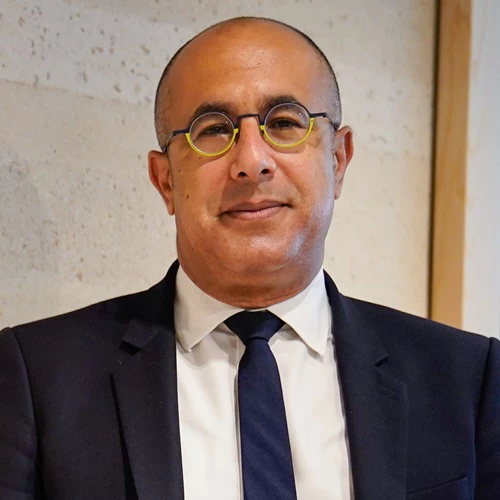
Basic infrastructure makes all the difference in the lives of people. Sometimes a road is all it takes…
Access to clean drinking water and sanitation can improve children’s health, reduce waterborne disease, and lower the risk of stunting.
Street lighting can improve the safety of a community, reduce gender-based violence, and add productive hours for shops and economic activities , which can help people escape poverty.
A paved road can lead to a world of possibilities for small business owners, increasing access to additional markets and suppliers, as well as opportunities to grow their businesses.
The urban infrastructure finance gap
Cities already account for approximately 70-80 percent of the world’s economic growth, and this will only increase as cities continue to grow. In the next 35 years, the population in cities is estimated to expand by an additional 2.5 billion people, almost double the population of China. As a vital component for connectivity, public health, social welfare, and economic development, infrastructure in all its forms – basic, social, and economic – is critical for the anticipated urban growth.
Globally, the annual investment required to cover the gap for resilient infrastructure is estimated at $4.5-$5.4 trillion. Cities will need partners to help them provide these building blocks for the future. The public sector cannot address these crucial needs alone, and overall official development assistance barely totals three percent of this amount. Cities should begin looking toward innovative financing options and to the private sector.
This year’s Ninth Session of the World Urban Forum (WUF9) recognized this and convened public and private sectors, multilateral development banks (MDBs), and civil society to jointly address the challenge of financing the New Urban Agenda. The World Bank, the largest financier of urban development among MDBs, was strategically involved in the discussion sharing expert knowledge and experience, and proposing strategies for the future.
Sustainable cities are financially sound cities
In order to facilitate private investment in urban projects, cities need to generate revenues, improve their financial management, and establish regulatory frameworks. The Bank is working with city, regional, and national governments to strengthen their institutional and fiscal capabilities, improve their management of existing resources, and prepare them to attract commercial-based capital.
Through an array of financial and technical instruments, the World Bank supports the development of urban infrastructure for growth opportunities, especially targeting the poor and vulnerable.
[Download: World Bank publications on urban development]
Leveraging performance-based grant systems
The World Bank’s Program-for-Results (PforR) instrument uses a country’s own institutions and processes, and links disbursement of funds directly to the achievement of specific program results. This approach helps build capacity within the country, enhances effectiveness and efficiency, and leads to achievement of tangible, sustainable program results.
For example, the Tanzania Urban Local Government Strengthening PforR aims to improve urban service delivery in 18 urban local authorities by strengthening an existing performance-based grant system. They will use grant proceeds to improve roads, public spaces for market and trade, and solid waste management, among other small-scale infrastructure in order to provide services and opportunities for their communities.
Other results-based projects financed by the World Bank in Senegal and Kenya have established intergovernmental fiscal transfer systems with a focus on performance incentives. The resulting additional financial resources for local governments have allowed them to provide the needed urban infrastructure for important public goods including water, sanitation, local roads, and services, such as health and education.
Strengthening cities’ municipal finances
The World Bank’s City Creditworthiness Initiative (CCI) offers another approach to strengthen the financial and institutional performance of urban local governments. Delivered to 600 municipal officials from 250 cities in 25 countries, the CCI provides hands-on support to cities on municipal finance – starting from own-source revenue generation, expenditure rationalization, asset management, all the way toward creditworthiness.
The five-day Creditworthiness Academies engage a range of cities from smaller, low-income, less-capacitated municipalities and utilities to well-capacitated, high-income megacities. In Uganda, the CCI assisted the Kampala Capital City Authority (KCCA) in achieving its first investment grade, national-scale credit rating.
Scaling up investments in resilient urban infrastructure
Under the development strategy, Maximizing Finance for Development (MFD), the World Bank Group is working with governments and the private sector on different approaches to address physical and social infrastructure needs. Solutions range from facilitating public-private partnerships (PPPs), helping governments gain access to capital markets, and providing guarantees to encourage private sector to invest.
Currently, the World Bank is developing a major global program – the City Resilience Program (CRP) – that is applying the MFD strategy to help cities address their infrastructure financing gap. This tailored program is leveraging the solid financial framework established by the World Bank’s long-standing technical assistance and support to governments in order to help them attract investment.
CRP helps cities identify and design projects with investment opportunities. Private capital experts will then support the cities to expand their financing options and connect them with additional sources, including private capital and institutional investors. By catalyzing both official and private financing, CRP in turn assists cities in maintaining infrastructure and expanding services sustainably. Currently, nearly 50 cities are involved.
As more people are moving to cities, looking for the “roads” to opportunity, holistic approaches to urban development need to be prioritized. It is by jointly tackling these development challenges that governments, private sector, MDBs, and civil society can help build inclusive, resilient, sustainable cities and communities for all.
Related:
- Blog post: Spatially awhere: Bridging the gap between leading and lagging regions
- Immersive story: 3 Big Ideas to Achieve Sustainable Cities and Communities
- Watch: WUF9 Video Blog Series
- Blog series: World Bank at the World Urban Forum
- Subscribe to our Sustainable Communities newsletter and Flipboard magazine
- Follow @WBG_Cities on Twitter




Join the Conversation